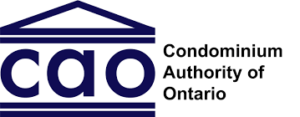 October 2023
October 2023
This question was recently asked by a Toronto Condo News reader seeking a way to ensure condo boards comply with the Condo Act, by-laws and other governing documents. They go on to state that Condominium Authority of Ontario and Condominium Management Regulatory Authority of Ontario “only work for corporations.”
This is interesting in that it displays a fundamental lack of understanding regarding condominium corporation governance, the role of these organizations, and a feeling of hopeless felt by many.
Condo owners are not able to organize as a union. A union is an organized association of workers formed to protect and further their rights and interests. Condo owners are not workers and each building has different interests. Owners have an obligation to maintain their home, and to other owners, in ways that employees do not.
Why would condo owners want to organize?
 There is no reason for condo owners to organize in the form of a “union”. They have more authority and power than any union could ever hope for. They can require the condo board to implement, revoke or update rules, by-laws and even possibly the declaration. They elect their directors. When dissatisfied with decisions, they can force a condo board to reverse them or have directors refusing to do so replaced.
There is no reason for condo owners to organize in the form of a “union”. They have more authority and power than any union could ever hope for. They can require the condo board to implement, revoke or update rules, by-laws and even possibly the declaration. They elect their directors. When dissatisfied with decisions, they can force a condo board to reverse them or have directors refusing to do so replaced.
Condo owners have an enormous amount of power and, as a general rule, choose not to exert their authority. This requires a majority of condo owners to support something and be prepared to do the work necessary to enact change as spelled out in the Condo Act. When too many owners are apathetic, ignorant or unconcerned about an issue, it may not be possible to achieve the 50 percent support required to enact change.
There are only a few exceptions to this. One is when condo fees are increased to ensure funds available to maintain the corporation. Owners have an obligation to fund these necessary expenditures through condo fees or a special assessment, or to obtain a condo loan.
CAO and CMRAO
The Condominium Authority of Ontario (CAO) and Condominium Management Regulatory Authority of Ontario (CMRAO) are government agencies.
 CMRAO is the regulatory body that sets standards and enforces the mandatory licensing of condominium managers and condominium management provider businesses. They have no involvement in addressing issues for or on behalf of condo owners.
CMRAO is the regulatory body that sets standards and enforces the mandatory licensing of condominium managers and condominium management provider businesses. They have no involvement in addressing issues for or on behalf of condo owners.
 CAO provides information with the goal of improving condo living by providing services and resources for condo communities. They have established the Condominium Authority Tribunal (CAT) to help people resolve their condo-related disputes conveniently, quickly and affordably. The Tribunal has authority to enforce provisions of the Condo Act on owners and condo boards.
CAO provides information with the goal of improving condo living by providing services and resources for condo communities. They have established the Condominium Authority Tribunal (CAT) to help people resolve their condo-related disputes conveniently, quickly and affordably. The Tribunal has authority to enforce provisions of the Condo Act on owners and condo boards.
Condo owners that comply with their governing documents and the Condo Act can utilize CAT as an efficient and economical way to ensure their condo boards are compliant.
Enacting Change
Most activities of the condo board occur without owners being aware. This is, for the most part, a satisfactory approach to condominium governance. From time to time, certain activities attract the attention of owners. There can be disagreements or concerns. The best way to address them is to maintain an ongoing dialog between condo owners and their condo board in the form of meetings, newsletters or other periodic communications. Condo boards present what they intend to do and reasons. Owners provide comment. When disagreements arise, a practical compromise is arrived at.
When ongoing and transparent dialog does not exist the system breaks down, trust disappears and conflict arises.
When condo owners disagree with their condo board and proposed or implemented solutions are unsatisfactory, owners have authority to requisition a meeting for virtually any purpose. When this purpose includes a vote of owners, a majority of owners can force the board to enact changes or reverse decisions. Should a condo board refuse, a CAT decision in favour of owners can ensure compliance. This may include recovery of costs and penalties to a condo board failing to comply with the Condo Act.
 Condo owners have all the power and authority they need to enact change.
Condo owners have all the power and authority they need to enact change.







